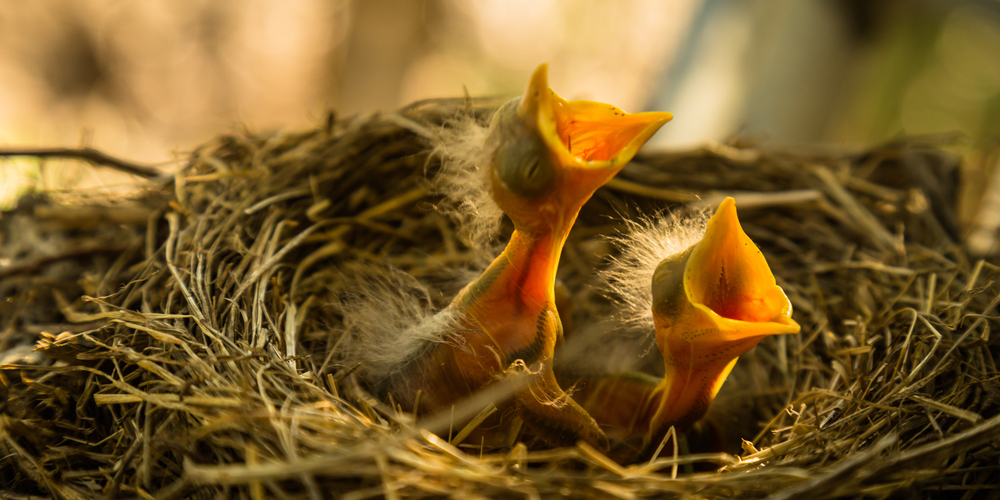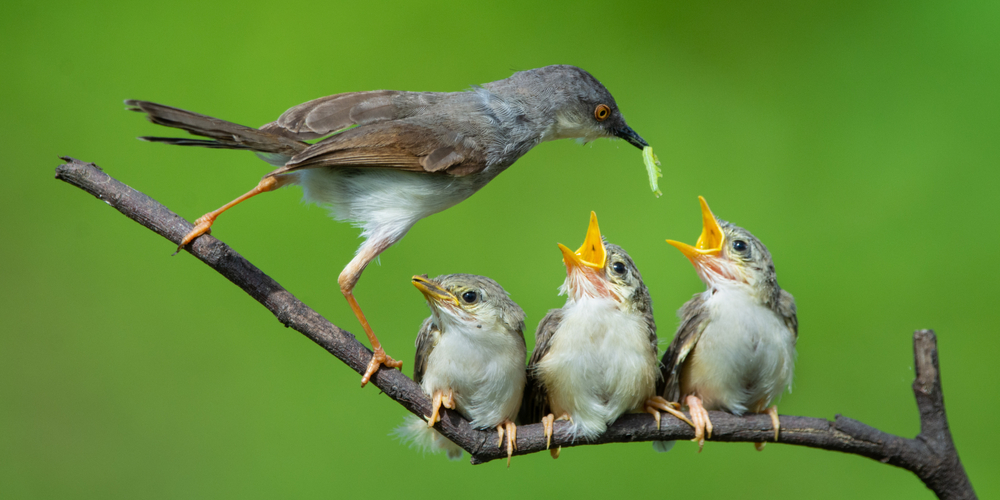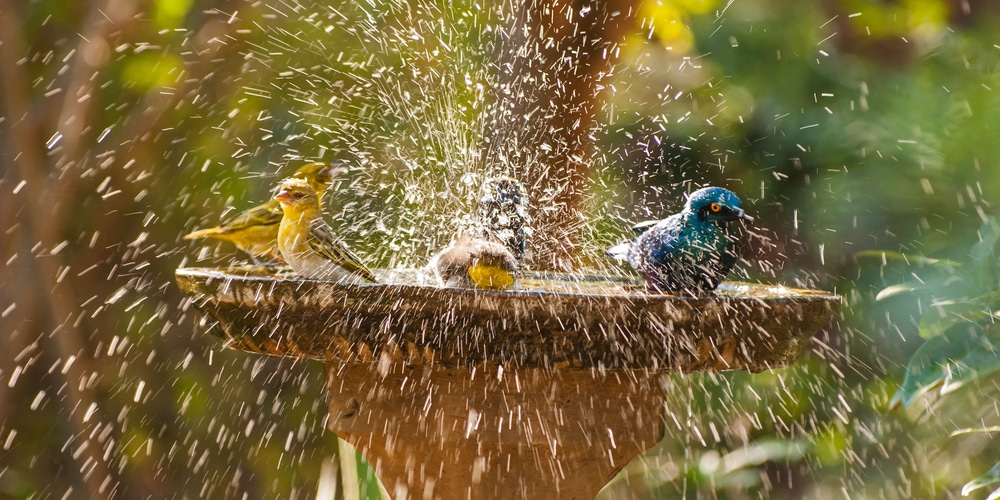Aside from being cute, cuddly, charming and adorable, baby birds are interesting to observe. Also, if you study the life of the baby bird, you may be surprised to know that there are numerous names that they are called by.
This is because baby birds are grouped into 5 classifications as they age. Therefore, when you are responding to questions like, do baby birds need water, it is important that you consider their ages and other factors that will influence this answer.
To that end, here are a few things you should know about baby birds as it relates to needing water to survive.
Generic Names for Baby Birds at Different Ages

The baby bird is called by several different names based on their age at that time. Some of the most popular names include hatchling, nestling, fledgling, juvenile and subadult.
These names are used according to the ages and their development so you can identify each by these characteristics. For instance, when a baby bird comes into the world, their bodies are not seen until their beak cracks the shell of the egg.
At this age, baby birds are not able to take care of themselves, they are almost completely naked, and their eyes are usually closed. The generic name that is given to the baby bird at this stage is hatchling.
On the other side of the spectrum, as the baby bird matures more, they are normally called fledglings. The fledgling can be described as a young bird that has developed most of the feathers that’s needed for flight. However, they can only hop around since they are not ready to leave the nest.
Baby Birds Do Need Water to Survive
According to information published on sites like birdgap.com, baby birds need both food and water to survive. Therefore, whenever they are born, the parents are responsible for ensuring that they get the nutrients and water that they need.
Also, as a general rule of thumb, baby birds can survive for at least 24 hours without feeding. Yet, when baby birds are fed solids and water, the mother birds normally supply these nutrients in 3 to 4 hour increments, especially when they are hatchlings.
The time frame for feeding baby birds will also vary based on their ages. Here’s the specific timeframe for the different ages as they grow.
- Hatchlings are provided with food and water every 3 to 4 hours
- Nestlings are provided with food and water every 5 hours
- Fledglings are provided with food and water every 6 hours
It is also important to note that the timeframe for baby birds can also vary by other key factors, too. For instance, the songbird nestling normally gets all of its water source from the foods that they eat when they are fed, and they can also last for a period of 24 hours without this water source.
On the other hand, the dove nestlings and the pigeon nestlings do not get their water sources from food that they eat. Instead, they usually drink the water that they need from other places including a wildlife rehabilitators if it is made available by someone who is looking to rescue them.
Special Precautions Required for Giving Baby Birds Water
As you do your research on baby birds and their need for water, you will also find that there is a wealth of information available online. Because there are different species of baby birds across the globe, the need for water can differ greatly from one species to another.
For example, giving water to a disabled or dehydrated baby bird can be life threatening. Therefore, you need to know exactly what you are doing before you try to give it water to revive it. And, here are a few reasons why.
- Baby birds can easily chokes on liquids, including water so they can die
- Baby mourning doves should only receive water from someone who is trained as rehabilitators.
- Birds like Hawks are predatory birds so they can attack and injure you
- Baby birds best survival is food (source of water) provided by their parents
Do baby birds need water: Summary
Do baby birds need water? The answer to this question is yes. Yes, the water that they need is given by their moms since their food is a main water source. The age and the type of baby bird that can also make a significant difference in where its sources of water come from and how they get it as they age.
So, it is important to become familiar with what is actually a healthy water source and what’s not, particularly since some dehydrated baby birds may choke on the water if they are given too much at the wrong time.
Related Article: When Do Baby Squirrels Leave the Nest?

